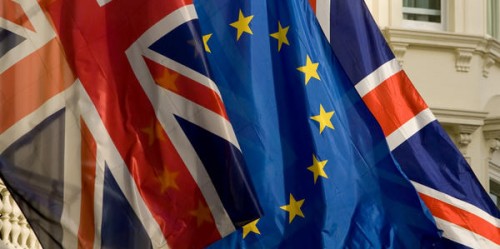
The lure of staying out of Europe has been the most seductive of all the dead-end policies that Labour has followed since Clement Attlee rejected co-operating with other European countries when Britain was invited to join the European Coal and Steel Community in 1950. The ECSC removed sovereign national control over these key industries and handed the power to a High Authority – a forerunner of today’s European Commission, with a parliamentary assembly, a supra-national court and freedom of movement as both mines and steel plants needed labour from other European countries.
Denis Healey, Labour’s international secretary in 1950, argued that “No socialist party could accept a system by which important fields of national policy were surrendered to a supranational European representative authority.”
Labour stayed hostile to Europe in the 1950s and 1960s and in 1983 even put Brexit – exiting the European Community – into its election manifesto. The rejection of Europe is a Labour seam that has been mined unendingly. Owen Jones, for example, coined the cute term “Lexit” in 2015 when he urged people to vote against Europe. To be fair, Jones changed his tune as he learned from Syriza how much Greece wanted to the stay in Europe and to keep using the euro, as Alexis Tsipras told Guardian readers.
The argument that Brexit allows a return to Healey’s socialism-in-one-country nostrums are not convincing. Larry Elliot, the respected Guardian economics editor, argues that had Labour won in June this year then Jeremy Corbyn would have had a mandate for “extensive nationalisation, ending austerity and higher taxation on companies and the well- off.”
This is true but there is nothing in the EU that stops nationalisation or fairer taxes – ask the Swedes on tax or the French on state-ownership.
British steelworkers are the first to complain – rightly – when Donald Trump proposes tariffs on steel imported from Europe, including Yorkshire, or when the Chinese dump steel at below production costs on European markets. The EU’s anti-protectionist values are good news for what is left of the industrial working class and have helped keep alive high value manufacturing in Europe.
Thanks to Japanese investors, Britain has re-created a car industry after the dismal performance of British Leyland, Robin Reliant, and Vauxhalls between 1950 and 1980. But Nissan, Toyota and Honda are only in the UK on the solemn promise of every prime minister since the 1980s that they would full unfettered access to the EU single market.
If that goes – leaving the single market is both Tory and Labour manifesto policy – Nissan will transfer production to its highly productive plant in Barcelona. The Brexit loss of working class manufacturing jobs in the 2020s will be as bad as Thatcher’s de-industrialisation of the 1980s.
Leaving the customs union not only brings back border controls in Northern Ireland but will also lead to endless queues of lorries at Dover and other ferry ports to Europe.
President Trump can think of no better re-election policy than to tell US chlorine-washed chicken exporters, big US pharma and media magnates that Liam Fox had agreed to open all British markets – such as food, the NHS, the BBC – to American oligopolies.
The EU has tariff-free trade deals with 49 of the poorest countries in the world and there is far more produce from Africa, Latin America and Asia in high street stores and supermarkets than was ever the case when Britain traded outside of the EU customs union.
Despite Barry Gardiner’s efforts to bounce Jeremy Corbyn into leaving the customs union, the referendum last year talked only of leaving the EU. It is perfectly possible to leave and still stay in the single market and customs union, as several non-EU member states can testify.
Labour got more confused this week when John McDonnell said Labour was “ruling nothing out” on membership of the single market. He repeated Labour’s shop worn mantra: “The position for us is straightforward. Our objective is tariff-free access to the market.”
This is wish-list politics. Every nation in the world would like “tariff-free access” to the single market. But that is only possible for Britain if it accepts core EU rules. Andrew Gwynne correctly noted that Labour would change its stance if public opinion shifted. But that is the language of followership. Public opinion changes when it senses clear political leadership. It has none from Theresa May’s Brexit-washed government stuffed with UKIP hormones in most cabinet members.
Europe is the only region in the world where trade union rights are built into supra-national law and protected by the European Court of Justice. Unions are now discussing the concept of a fair movement directive which is smarter politics than isolationism.
The British left should be very, very cautious about going down the Lexit or Healey road. The Tories have created the Brexit mess and Labour should let them fight to the political death amongst themselves while remaining the party of European reform and social justice.
Denis MacShane is a former Europe minister. He book Brexit, No Exit. Why (in the End) Britain Won’t Leave Europe has just been published by IB Tauris.




More from LabourList
‘Council Tax shouldn’t punish those who have the least or those we owe the most’
Two-thirds of Labour members say government has made too many policy U-turns, poll reveals
‘Two states, one future: five steps on the path to peace for Israelis and Palestinians’